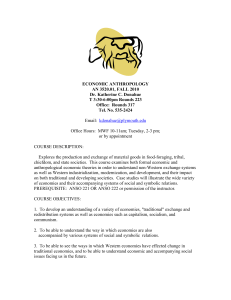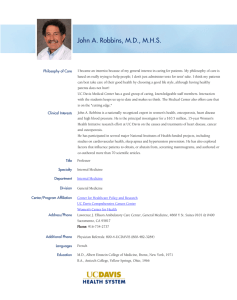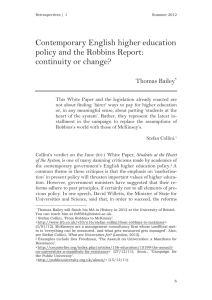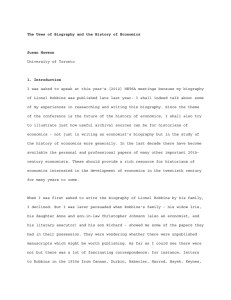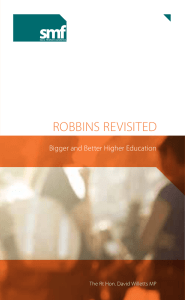Identification Subject (code, title, credits) MGT 410: Organizational
advertisement
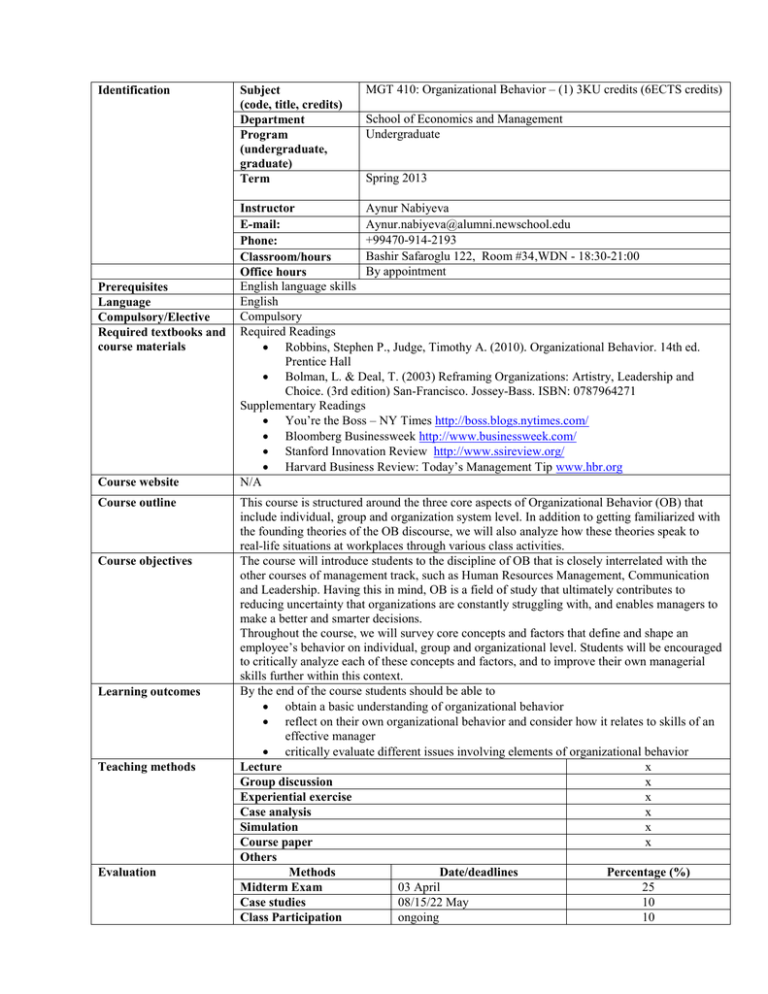
Identification Prerequisites Language Compulsory/Elective Required textbooks and course materials Course website Course outline Course objectives Learning outcomes Teaching methods Evaluation Subject (code, title, credits) Department Program (undergraduate, graduate) Term MGT 410: Organizational Behavior – (1) 3KU credits (6ECTS credits) School of Economics and Management Undergraduate Spring 2013 Aynur Nabiyeva Instructor Aynur.nabiyeva@alumni.newschool.edu E-mail: +99470-914-2193 Phone: Bashir Safaroglu 122, Room #34,WDN - 18:30-21:00 Classroom/hours By appointment Office hours English language skills English Compulsory Required Readings Robbins, Stephen P., Judge, Timothy A. (2010). Organizational Behavior. 14th ed. Prentice Hall Bolman, L. & Deal, T. (2003) Reframing Organizations: Artistry, Leadership and Choice. (3rd edition) San-Francisco. Jossey-Bass. ISBN: 0787964271 Supplementary Readings You’re the Boss – NY Times http://boss.blogs.nytimes.com/ Bloomberg Businessweek http://www.businessweek.com/ Stanford Innovation Review http://www.ssireview.org/ Harvard Business Review: Today’s Management Tip www.hbr.org N/A This course is structured around the three core aspects of Organizational Behavior (OB) that include individual, group and organization system level. In addition to getting familiarized with the founding theories of the OB discourse, we will also analyze how these theories speak to real-life situations at workplaces through various class activities. The course will introduce students to the discipline of OB that is closely interrelated with the other courses of management track, such as Human Resources Management, Communication and Leadership. Having this in mind, OB is a field of study that ultimately contributes to reducing uncertainty that organizations are constantly struggling with, and enables managers to make a better and smarter decisions. Throughout the course, we will survey core concepts and factors that define and shape an employee’s behavior on individual, group and organizational level. Students will be encouraged to critically analyze each of these concepts and factors, and to improve their own managerial skills further within this context. By the end of the course students should be able to obtain a basic understanding of organizational behavior reflect on their own organizational behavior and consider how it relates to skills of an effective manager critically evaluate different issues involving elements of organizational behavior x Lecture x Group discussion x Experiential exercise x Case analysis x Simulation x Course paper Others Methods Date/deadlines Percentage (%) 03 April 25 Midterm Exam 08/15/22 May 10 Case studies ongoing 10 Class Participation 27 March (discussion paper) 10 Assignment and quizzes Project 08/15/22 May Presentation/Group Discussion TBD 35 Final Exam TBD 10 Others 100 Total Academic Integrity Every student is expected to familiarize himself or herself with the academic honesty policy of Khazar University. Any evidence of cheating and/or plagiarism will be heavily penalized. Policy Week Style Sheets There is no requirement on a specific style of citation as long as it is consistent and accurate. You can familiarize yourself with some of the research resources and citation styles on Online Writing Lab of Purdue University http://owl.english.purdue.edu/owl/section/2/ 1 2 3 4 5 6 7 Date/Day (tentative) 13.02.13 20.02.13 27.02.13 06.03.13 13.03.13 27.03.13 03.04.13 Grading and Class Requirements Attendance is mandatory. Students may not miss more than one session, and in this case the instructor should be notified about student’s absence beforehand (not less than 24 hours before the class). There is no lateness policy – late assignments will neither be accepted nor graded. Tentative Schedule Topics Textbook/Assignments Course Overview, Introduction: What is organizational behavior? Foundations of individual behavior Attitudes and job satisfaction Personality and values; Emotions and moods Perception and individual decision making Novruz holiday Motivation concepts; Motivation: from concepts to applications 8 9 10 11 12 13 10.04.13 17.04.13 24.04.13 01.05.13 08.05.13 15.05.13 Midterm Exam Foundations of group behavior Understanding work teams Communication Reframing leadership Power conflict and coalitions 14 22.05.13 The Structural Frame: Getting organized 15 29.05.13 Organizational culture and symbols 16 17 05.06.123 Will be announced Wrap-up; Review of final exam Final Exam Robbins: Chapter 1 Robbins: Chapter 2 Robbins: Chapter 3 Robbins: Chapter 4&8 Robbins: Chapter 5 Robbins: Chapter 6&7 Discussion paper due at 10:00am Robbins: Chapter 9 Robbins: Chapter 10 Robbins: Chapter 11 Bolman&Deal: Chapter 17 Bolman&Deal: Chapter 9 Learning Team A presents; ppt and memo due at 10:00am Bolman&Deal: Chapter 3 Learning Team B presents; ppt and memo due at 10:00am Bolman&Deal: Chapter 12 Learning Team C presents; ppt and memo due at 10:00am
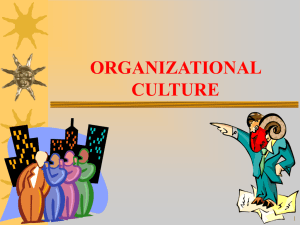
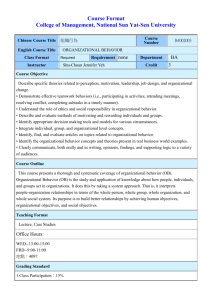
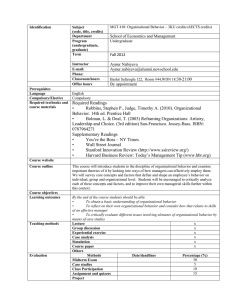
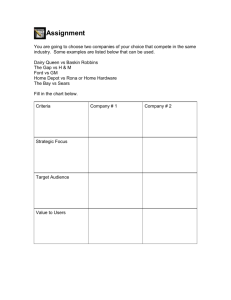
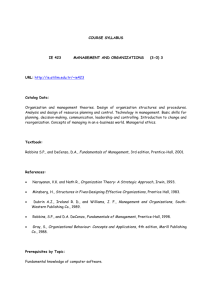
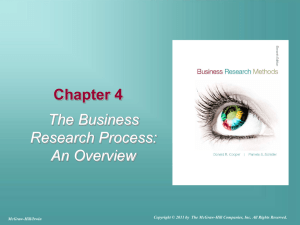
![The Next 50 Years: Imagining the University of the Future [PPT 2.25MB]](http://s2.studylib.net/store/data/015030210_1-a54d391ee5cd497a682b0e9466b5743e-300x300.png)
